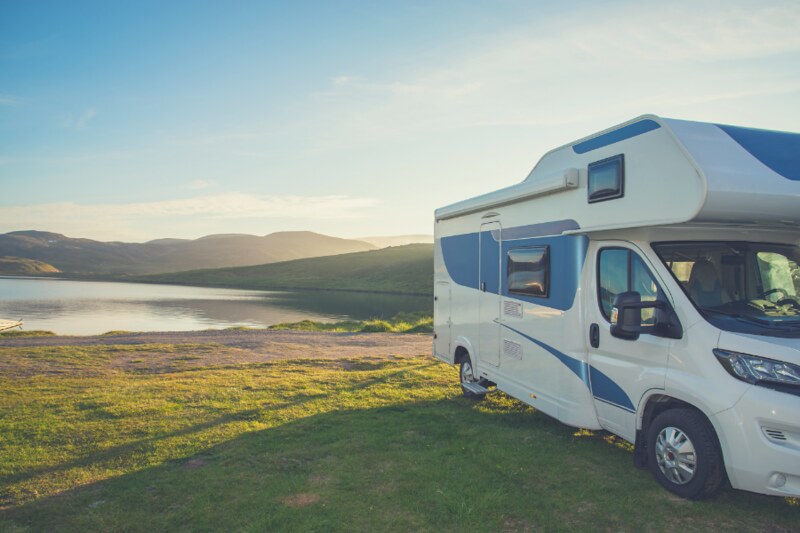Harris, Reed & Seiferth
|
|
Tires
RV tires are not like tires on your everyday vehicle. They've most likely been exposed to the elements during the winter months and have not been driven on. This can cause premature cracks and a blown out tire while you're traveling. Make sure to inspect your tires for damage and also inspect the sidewalls and the tread area for flaws. It's a good idea to replace tires every five years, even if they still appear to have adequate tread, to avoid tire failure. Pay Attention To Weight Chances are you may have accumulated items in your RV over the years that could cause your rig to be overweight by industry safety standards. Take your RV to a weigh station before heading out on the road. Even if you're under your designated load rating, getting rid of extra weight can improve your fuel economy and you'll have better handling. You can have your rig weighed at a public weigh station for a minimal fee. Look in the Yellow Pages under “Scales, Public” to find the location of scales nearest you. Be sure to weigh your rig when it's fully loaded. It's also important to weigh each axle separately. After the weigh-in you might be surprised at how quickly the combined weight of your passengers and all your “stuff” add up to more than you expected. Check Towing Equipment Be sure to check your tow hitch and your safety chains. And make sure the mountings on your luggage racks are secure and tie-downs are strong enough to handle the loads you plan to carry. Line Prep Is A Must Take the time to flush all winterizing solutions used to prevent water line freeze over the winter. RV antifreezes are not necessarily toxic, but can produce unpleasant odors when they are heated in either a water heater or a coffee pot. Be sure to check LP tanks. All tanks by law must have a 10 percent safety valve. The valve releases and lets off gas in case of over-filling. If your tank doesn't have the safety valve, get a new tank. Also, fill your LP tanks to only 80 or 90 percent of their volume – depending on the temperature. Inspect and test all connections to every appliance. In order to check lines for leaks, just dab soapy water on fittings and watch for bubbles. Also, look at appliance vents for obstructions since it's not uncommon for squirrels and birds to build nests in vents. Check your fire extinguishers, smoke detector and carbon monoxide (CO) detector to make sure they are in proper working order. Some fire extinguishers have a gauge that indicates their condition, others have a test button and instructions for making a condition test. You should have two 2 1/2 lb. fire extinguishers with a rating of 5BC – one located in the galley and the other in the cockpit of your motor home or tow vehicle. Test the smoke detector's battery, as well as your CO detector according to manufacturer's instructions. A few hours of preparation can save you a huge amount of hassle in the long run. And remember to always make safety your first priority on the road. Need RV Insurance? In addition to RV Safety tips for your next road trip, make sure you have insurance coverage specialized for your RV. Check out our RV Insurance coverage options or get a quote. Source: https://www.foremost.com/mygreatoutdoors/rv/road-trip-prep.asp
0 Comments
Leave a Reply. |
Categories
All
Archives
May 2024
|
Social MediaContact UsNavigation |
|
Website by InsuranceSplash
Privacy Policy | Terms of Use
© 2025 by HARRIS, REED & SEIFERTH INSURANCE GROUP, INC. All rights reserved.
© 2025 by HARRIS, REED & SEIFERTH INSURANCE GROUP, INC. All rights reserved.


 RSS Feed
RSS Feed